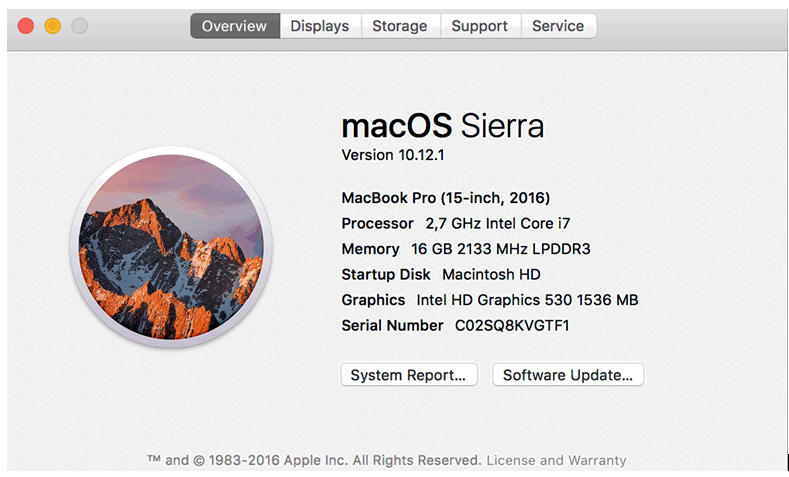
- #Java download for mac sierra install#
- #Java download for mac sierra update#
- #Java download for mac sierra android#
- #Java download for mac sierra software#
#Java download for mac sierra software#
This package is exclusively intended for support of legacy software and installs the same deprecated version of Java 6 included in the 5 releases. Java for OS X 2015-001 installs the legacy Java 6 runtime for OS X 10.11 El Capitan, OS X 10.10 Yosemite, OS X 10.9 Mavericks, OS X 10.8 Mountain Lion, and OS X 10.7 Lion. In the release notes for the Java 6 update, Apple states:
#Java download for mac sierra update#
This is a special update from Apple which allows the outdated Java 6 to safely run on your Mac.
#Java download for mac sierra install#
If you’re having problems running Java 6 on your Mac in El Capitan then you simply need to install Apple’s legacy Java 6 OS X 2015-001 update.
#Java download for mac sierra android#
It’s because some applications, games and websites still only work with Java 6. Examples of people that may still need Java 6 are those trying to access some government sites, some online games and Android programmers that require Java 6 to develop Android apps on Mac. Or the Java applet crashes with an error message such as:Ĭom.: (.) Service exited with abnormal code: 1 If you find that Java apps or applets will either refuse to run or open briefly before crashing giving you an error message such as “This application requires the legacy Java SE 6 runtime which is unavailable for this version of OS X”: Note: You will have to deactivate SIP when new updates for Java are released as Java will not update while SIP is enabled.

Java has such a bad rep on Macs that Apple has made it increasingly difficult to install it and other things that can potentially damage OS X. If you run into problems during the installation of Java, it’s because Apple has added an extra layer of security to Macs known as Rootless SIP. Java Installation Problems in El Capitan, Sierra & High Sierra If you find that you already have Java 1.6 installed, scroll down below “How to update Java 6 in El Capitan” as you also need to install a special update from Apple. If Java is on your Mac, you’ll see a message saying something like “Java (TM) Runtime Environment” in this case version 1.6 (or Java 6 as it is commonly known). If you’re not sure whether Java is installed on your Mac, simply search for Terminal in Spotlight and type: java -version at the command prompt. If you’ve never installed Java on Mac, then you can simply download and install the latest version of Java from Oracle which is known as Java 8 but rather confusingly officially called Java 1.8 by Oracle. It’s because an application you have installed or a website you’re trying to access requires Java to launch or work properly. You would obviously not want to uninstall Java if an app or web app you use requires Java.To use the “java” command line tool you need to install a Java SDK

Many Mac users don't need Java on their computer, but if you happen to have Java installed and want to remove it from a Mac then you can uninstall Java and JRE with a little effort. If you have Oracle's Java installed then you have a preferences panel from which you can update. If you are using an older program that relies on the old Apple Java then you will need Download Java for OS X 2017-001. Question: Q: Java update 2019 You need to go to their site to locate the current version for macOS. Subsequently, question is, do I need Java on my Mac 2019?

But, again, even if you did install Java, the odds are very, very good that you aren't running a vulnerable version. Many users do install Java for websites or applications (like Crashplan) that require it. By default, Safari and other browsers will not run Java automatically, but at least ask you if you want to enable it for that site, when it's installed.Īlso Know, is Java bad for Mac? The first, and most important, reason is that relatively few Macs are running the vulnerable version of Java. Java is normally installed as an add-in to macOS, and supports the running of Java apps via web pages and as standalone apps on your Mac. In this manner, is Java necessary on Mac? As you may know by now, MacOS no longer ships with Java preinstalled, so you'll need to download and install java on your own if you need it in MacOS 10.13 or 10.12. Some Mac users may need to install Java into macOS Sierra or MacOS High Sierra.


 0 kommentar(er)
0 kommentar(er)
